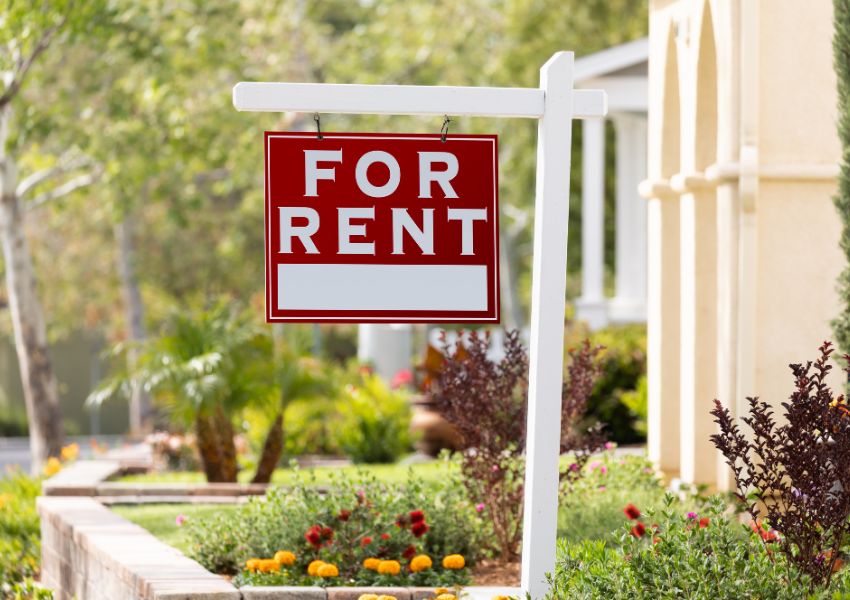
While many landlords prefer to find long-term tenants, month-to-month leases are a great option for property owners looking to rent their property without a long-term commitment.
If you’re a landlord considering a short-term lease, it’s important to be well-informed before deciding whether you’ll be renting out your home on a month-to-month basis. Luckily, we’re here to help! This article will outline the pros and cons of short-term leases so you can decide if a month-to-month lease is the right fit for you.
What Is a Month-to-Month Lease?
A month-to-month lease is a legally binding agreement between a landlord and a tenant that gives a renter the right to live in a property for a fixed period. In this case, a month.
When it comes to short-term leases like month-to-month leases, the contract typically involves an automatic renewal until one of the parties gives a minimum of 15 to 30 days' notice of nonrenewal.
Most of the time, month-to-month rental agreements are used to extend existing leases. However, landlords and tenants can also sign a month-to-month lease from the beginning if they’d like. For example, month-to-month leases are great for landlords with furnished rental properties since these units typically attract more short-term renters.
What Are the Pros and Cons of a Month-to-Month Lease?
Like long-term leases, month-to-month rental agreements have plenty of advantages. However, they also come with some drawbacks.
Pros of a Month-to-Month Lease
Benefits of renting out your rental property on a monthly basis include:
Higher Rent Prices
One of the biggest advantages of a month-to-month lease is the potential to earn more money. Short-term rental agreements allow you to raise the rent price without having to worry about losing tenants. Most short-term renters are willing to splurge more on rent as long as the unit is in good condition and has everything they need for their stay.

Landlords can also charge a higher rental price for month-to-month leases because renting to short-term tenants can be riskier. Some landlords even charge a $100 to $300 premium every month to keep themselves and their property protected.
More Flexibility
A month-to-month lease allows you to be more flexible when it comes to ending a rental agreement. All you need to do is provide tenants with proper notice that you won’t be renewing their lease, which can range from 15 to 30 days.
A month-to-month lease also allows you to tweak the clauses and conditions of a lease agreement in a shorter period. This will give you more control over who you’re renting your property to, and it’s also a way to accommodate new tenants.
Fewer Tenant Problems
Short-term leases make it easier for you to get rid of problematic tenants. You can end a lease of a late-paying tenant, for example, with as little as a 15-day notice. And the best part is that there are no penalties for ending a month-to-month lease if the tenant has been properly notified.
Quick Tenant Turnover
Month-to-month leases have the advantage of letting you find replacement tenants before a lease is over. Once you serve a tenant a non-renewal notice, you have up to 30 days to advertise your property and screen tenants to find a new and trustworthy renter.
Retention of Quality Tenants
The goal of every landlord should be to find great tenants. Luckily, with a short-term lease, you can retain trustworthy renters even after their rental agreement is over by suggesting month-to-month renewal.

This way, you’ll have the peace of mind of knowing that your property is in good hands.
Cons of a Month-to-Month Lease
There are still disadvantages to short-term leases however, such as potential:
Loss of Income
A month-to-month lease makes it harder to generate consistent rental income. This is mainly because tenants can break the lease on short notice. The cost of tenant turnover can also be expensive, with cleaning and repairs costs consuming most of your income.
Uncertainty
Ideally, you want renters to stay for the long term, but with a month-to-month lease, this is not always possible. With a short-term lease comes a flexible end date, which can lead to uncertainty. This means that you, as a landlord, are always 30 days away from having an empty unit.
Difficulty Finding New Tenants
A 30-day notice is not always sufficient to find new tenants. The short amount of time can create more stress for you, especially as you get closer to having a vacancy. It can also limit your ability to find quality tenants.

Having to advertise your properties and screen tenants frequently can also be exhausting if you're doing it yourself. And, if you’re working with a third party to do it, it can consume most of your earnings.
How Can I Create a Solid Month-To-Month Lease Agreement?
A solid lease agreement will keep you and your property protected whether you rent out your property for the short or long term. Make sure your rental agreement includes key clauses like:
- Security deposit requirements
- Penalties for late rent
- Penalties for property damage
- Insurance requirements
- Pet policies
If you want to ensure your investment property is legally protected during a tenancy, it’s best to hire a property management company to help you draft your lease. A company like Lone Eagle Management will ensure you’re not missing any essential clauses and make sure you comply with landlord-tenant laws and the Fair Housing Act.
In A Nutshell: Month to Month Leases
Month-to-month leases offer great flexibility to both landlords and tenants. However, with this also come several drawbacks, such as an unstable source of income and a bigger risk of vacancies. Now that you better understand the cons and pros of this kind of short-term lease, you can determine whether it’s a good choice for you.
If you have more questions about month-to-month leasing or you’re looking to hire a property management company in New Jersey, consider Lone Eagle Management.
We offer full-service property management to landlords in Somerset County, Morris County, Bergen County and Union County. Contact us today at (973) 377-7377 to learn how we can help you!